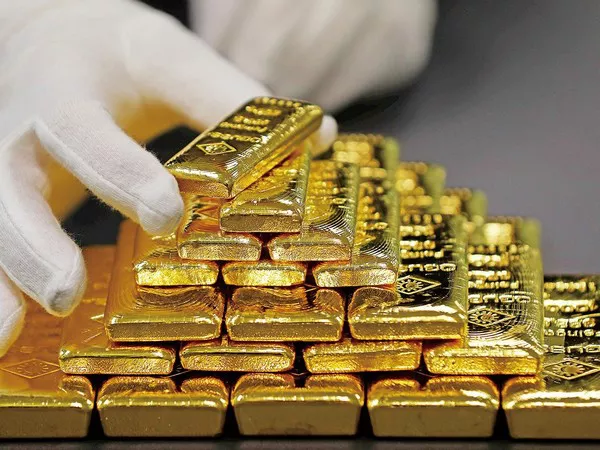Predicting the future price of gold involves a complex analysis of various economic, geopolitical, and market factors. Investors, analysts, and enthusiasts closely monitor these elements to make informed decisions. In this article, we will delve into the spot gold price prediction for the years 2023 and 2024, exploring key factors that may influence its trajectory.
I. Current Market Trends
1. Inflation Concerns:
In recent times, concerns about inflation have been a driving force behind gold’s appeal. Historically, gold has been considered a hedge against inflation, as its value tends to rise when the purchasing power of a currency decreases.
2. Global Economic Stability:
Economic stability, or the lack thereof, significantly impacts gold prices. Economic uncertainty often leads investors to seek safe-haven assets like gold, contributing to its upward price movement.
3. Central Bank Policies:
The monetary policies of major central banks, particularly regarding interest rates, can influence gold prices. Lower interest rates, as seen in response to economic challenges, tend to make gold more attractive.
II. Factors Influencing Gold Prices in 2023-2024
1. Inflation and Interest Rates:
If inflation remains a concern and central banks maintain accommodative policies, gold may continue to be an attractive option for investors seeking to preserve wealth.
2. Global Economic Recovery:
The pace and sustainability of the global economic recovery will play a crucial role. A robust recovery may reduce the demand for safe-haven assets, potentially impacting gold prices.
3. Geopolitical Tensions:
Geopolitical events, such as conflicts or trade disputes, can create uncertainty and drive investors towards safe-haven assets. Any escalation of tensions may contribute to an increase in gold prices.
4. Currency Movements:
Gold is priced in U.S. dollars, and currency fluctuations can impact its value. A weaker dollar tends to boost gold prices, making it more attractive for investors using other currencies.
III. Expert Opinions and Forecasts
1. Analyst Predictions:
Financial analysts and institutions regularly publish forecasts based on their assessments of market conditions. These predictions often consider economic indicators, geopolitical events, and historical price trends.
2. Industry Reports:
Industry reports from reputable sources provide insights into supply and demand dynamics, production trends, and the overall health of the gold market. These reports can be valuable in understanding the broader context.
3. Historical Performance:
Examining how gold has performed in similar economic and geopolitical conditions in the past can offer insights into potential future trends. However, past performance is not a guarantee of future results.
IV. Challenges and Risks to Consider
1. Economic Data Variability:
Economic data is subject to revisions, and unexpected changes can impact gold prices. Unforeseen shifts in economic indicators may challenge accurate predictions.
2. Unpredictable Geopolitical Events:
Geopolitical events are inherently unpredictable. Unexpected developments can occur, rapidly changing market sentiment and influencing gold prices.
3. Market Sentiment Fluctuations:
Gold prices are influenced by investor sentiment, which can be fickle. Sudden shifts in sentiment, driven by news or events, may lead to price volatility.
V. Frequently Asked Questions
Q1: Is gold a safe investment for the future?
While gold is often considered a safe-haven asset, its suitability as an investment depends on various factors, including individual financial goals, risk tolerance, and the overall economic climate. It’s advisable to diversify investments and seek professional advice.
Q2: How does inflation impact gold prices?
Inflation erodes the purchasing power of a currency, making it less valuable over time. Gold is seen as a hedge against inflation because its intrinsic value tends to remain relatively stable, preserving wealth in times of rising prices.
Q3: What role do central banks play in influencing gold prices?
Central banks’ policies, particularly regarding interest rates, can impact gold prices. Lower interest rates, often implemented in response to economic challenges, can make gold more attractive to investors seeking yield in a low-interest-rate environment.
Q4: How can geopolitical events affect gold prices?
Geopolitical events create uncertainty, prompting investors to seek safe-haven assets like gold. Events such as conflicts, trade tensions, or political instability can lead to increased demand for gold, influencing its prices.
Q5: Should I rely on expert predictions for gold investment decisions?
While expert predictions and analyses provide valuable insights, they are not foolproof. Markets are influenced by numerous variables, and unforeseen events can occur. It’s essential for investors to conduct thorough research, consider multiple sources, and diversify their investment portfolio.
Q6: Can I predict gold prices based on historical performance?
While historical performance can offer insights into how gold has behaved in certain conditions, it’s crucial to consider that each market situation is unique. Historical data should be part of a comprehensive analysis that includes current economic indicators and geopolitical factors.
Q7: What are the risks of investing in gold?
Investing in gold comes with risks, including price volatility, economic uncertainties, and the potential for opportunity costs. It’s important for investors to assess their risk tolerance and consider gold as part of a diversified investment strategy.

